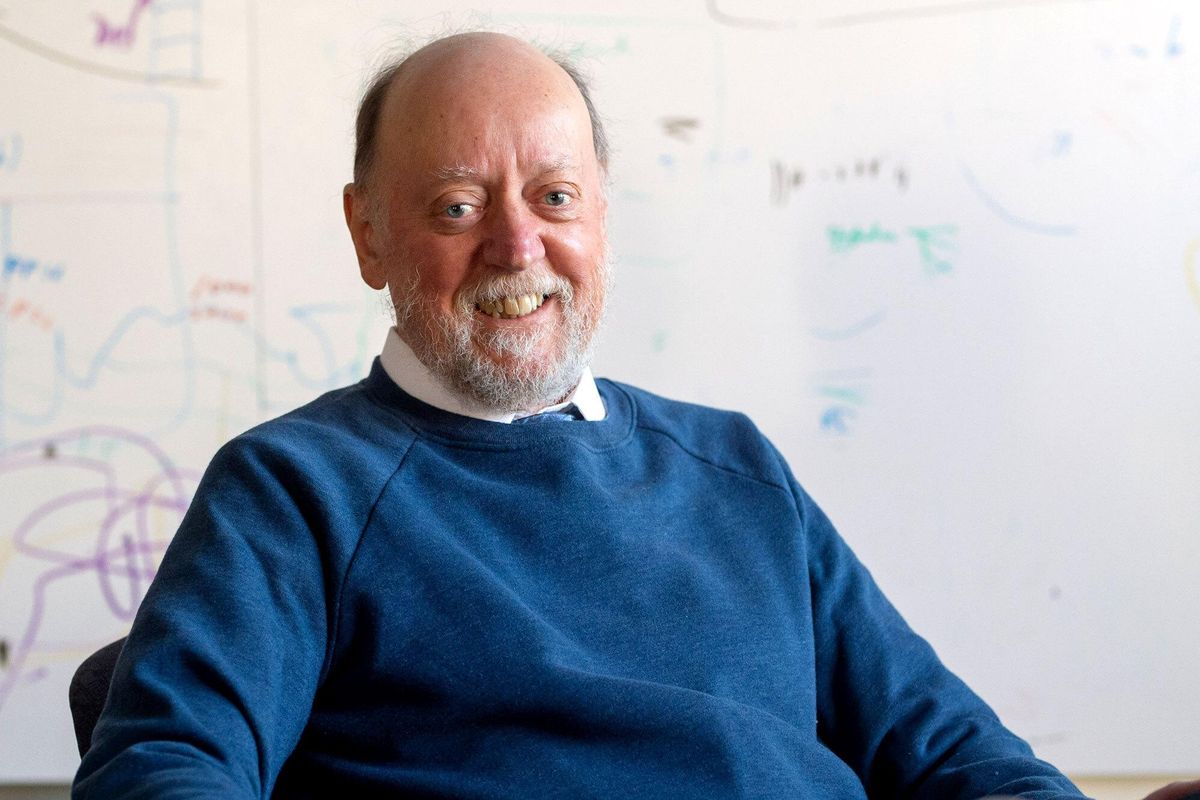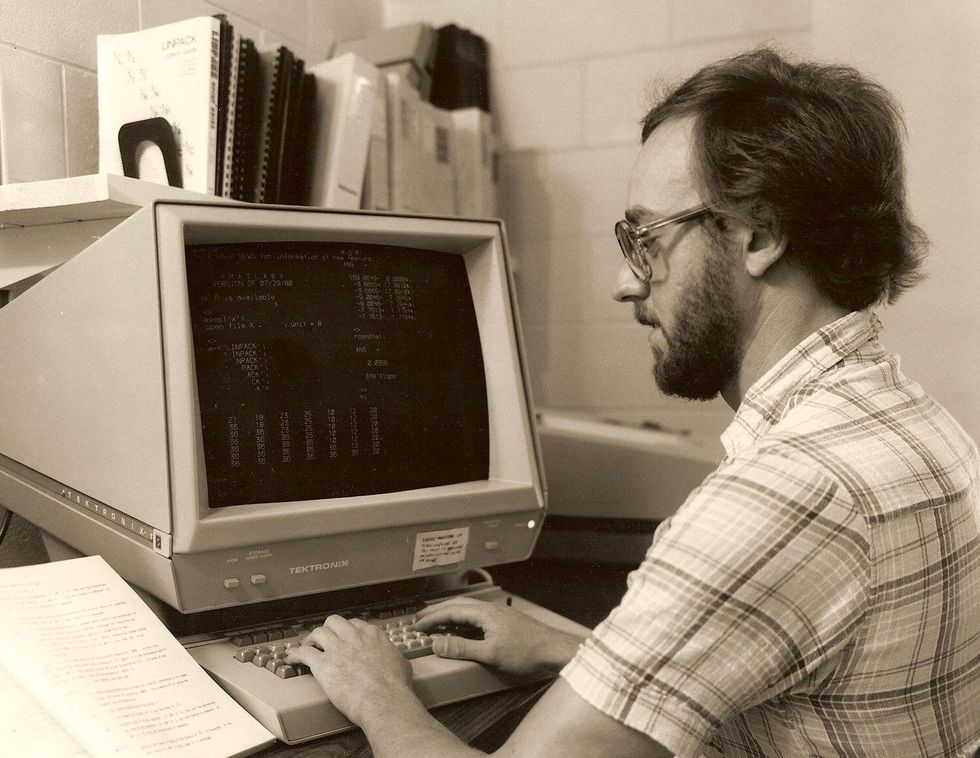
Jack Dongarra’s desire task escalating up was to instruct science at a community substantial college in Chicago.
“I was very very good in math and science, but I wasn’t a particularly superior university student,” Dongarra claims, laughing.
After he graduated large university, there was only a single college he wished to show up at: Chicago Condition. Which is for the reason that, he claims, it was regarded for “churning out instructors.” Chicago Condition approved his software, and he decided to significant in mathematics.
His physics professor instructed that Dongarra utilize for an internship at the Argonne National Laboratory, in Lemont, Sick., a close by U.S. Office of Electricity science and engineering investigation heart. For 16 months he worked with a team of researchers coming up with and acquiring EISPACK, a deal of Fortran routines that compute the eigenvalues and eigenvectors of matrices—calculations typical in scientific computing.
Dongarra acknowledges he did not have a history in or information of eigenvalues and eigenvectors—or of linear algebra—but he loved what he was performing. The encounter at Argonne, he says, was transformative. He experienced observed his enthusiasm.
“I assumed it was a great point to do,” he states, “so I kept pursuing it.”
About Jack Dongarra
Employer: University of Tennessee, Knoxville
Title: Professor emeritus, pc science
Member grade: Existence Fellow
Alma mater: Chicago Point out College
The IEEE Everyday living Fellow has considering the fact that created groundbreaking contributions to numerical algorithms and libraries for linear algebra, which authorized software to make good use of superior-functionality hardware. His open-resource software libraries are utilized in just about every single personal computer, from laptops to the world’s quickest supercomputers.
The libraries include primary linear algebra subprograms (BLAS), the linear-algebra bundle LAPACK, parallel virtual equipment (PVMs), instantly tuned linear algebra software package (ATLAS), and the substantial-efficiency conjugate gradient (HPCG) benchmark.
For his get the job done, he was honored this calendar year with the 2021 A.M. Turing Award from the Affiliation for Computing Equipment. He been given US $1 million as section of the award, which is recognised as the Nobel Prize of computing.
“When I imagine about prior Turing Award recipients, I’m humbled to believe about what I’ve uncovered from their publications and papers,” Dongarra suggests. “Their programming languages, theorems, approaches, and specifications have aided me create my algorithms.
“It’s a great honor to be this year’s recipient. The award is a recognition by the laptop-science community that the contributions we are building in significant-efficiency computing are important and have an affect in the broader computer-science local community and science in general.”
Dongarra didn’t conclude up training science to significant faculty pupils. As an alternative, he became a professor of electrical engineering and computer science at the University of Tennessee in Knoxville, where by he taught for 33 yrs. The university lately named him professor emeritus.
Entrepreneurial Spirit
Right after graduating from Chicago Point out in 1972 with a bachelor’s diploma in arithmetic, Dongarra went on to go after a master’s diploma in pc science at the Illinois Institute of Know-how, also in Chicago. When there he worked one particular working day a 7 days for Argonne with the very same group of scientists. Soon after he bought his degree in 1973, the lab employed him total time as a researcher.
With encouragement from his colleagues to go after a Ph.D., he still left the lab to review utilized mathematics at the College of New Mexico in Albuquerque. He honed his information of linear algebra there and began functioning out algorithms and producing software.
He returned to Argonne following receiving his doctorate in 1980 and labored there as a senior scientist till 1989, when he got the chance to satisfy his desire of instructing.
He was made available a joint situation educating laptop science at the College of Tennessee and conducting exploration at the nearby Oak Ridge Countrywide Laboratory which, like Argonne, is a Division of Energy facility.
“It was time for me to attempt out some new things,” he suggests. “I was ready to consider my hand at academia.”
He suggests Oak Ridge operated in a identical way to Argonne, and the lifestyle there was additional or considerably less the identical.
“The challenge,” he claims, “was getting to be a university professor.”
“The Turing Award is a recognition by the personal computer science group that the contributions we are generating in large-efficiency computing are vital, and have an impact in the broader pc science community and science in common.”
University tradition is very distinctive from that at a federal government laboratory, he says, but he swiftly fell into the rhythm of the tutorial setting.
Though he beloved educating, he claims, he also was attracted to the opportunity the college gave its instructors to operate on technology they are passionate about.
“You adhere to your own path and program of investigation,” he says. “I’ve prospered in that atmosphere. I interact with intelligent persons, I have the skill to journey around the globe, and I have collaborations heading on with folks in numerous nations.
“Academia provides you this freedom to do items and not be constrained by a company’s push or its drive. Alternatively, I get to work on what motivates me. That is why I have stayed in academia for so many years.”

In 1980, Dongarra worked as a senior scientist at Argonne National Laboratory, in Lemont, Ill.Jack Dongarra
Dongarra founded the university’s Innovative Computing Laboratory, whose mission is to present instruments for substantial-effectiveness computing to the scientific community. He also directs the school’s Centre for Info Technological know-how Study.
He is now a distinguished researcher at Oak Ridge, which he phone calls “a great spot, with its condition-of-the-art tools and the newest computers.”
Software for Supercomputers
It was performing in innovative environments that led Dongarra to appear up with what many explain as earth-transforming application libraries, which have contributed to the expansion of higher-performance computing in numerous places together with synthetic intelligence, knowledge analytics, genomics, and well being treatment.
“The libraries we created have standard parts that are necessary in numerous parts of science so that users can draw on all those factors to support them solve their computational troubles,” he says. “That software is portable and successful. It has all the characteristics that we want in phrases of becoming easy to understand and providing reliable final results.”
He’s presently functioning on developing a computer software library for the world’s fastest supercomputer, Frontier, which not too long ago was put in at the Oak Ridge lab. It is the first laptop or computer that can system much more than 1 quintillion operations per second.
Laptop-Science Recognition
Dongarra has been an IEEE member for far more than 30 several years.
“I appreciate interacting with the neighborhood,” he claims in detailing why he carries on to belong. “Also I love studying IEEE Spectrum and journals that are related to my certain area.”
He has served as an editor for quite a few IEEE journals like Proceedings of the IEEE, IEEE Computer Architecture Letters, and IEEE Transactions on Parallel and Dispersed Systems.
Dongarra suggests he’s a major promoter of IEEE meetings and workshops, in particular the Worldwide Meeting for Substantial General performance Computing, Networking, Storage, and Examination, sponsored by ACM and the IEEE Computer system Culture, of which he is a member. He’s been attending the celebration each year since 1988. He has received many awards at the convention for his papers.
“That convention is really a homecoming for the higher-functionality computing neighborhood,” he claims, “and IEEE performs a important position.”
IEEE is proud of Dongarra’s contributions to computing and has honored him over the a long time. In 2008 he acquired the very first IEEE Medal of Excellence in Scalable Computing. He also been given the 2020 Laptop Pioneer Award, the 2013 ACM/IEEE Ken Kennedy Award, the 2011 IEEE Charles Babbage Award and the 2003 Sidney Fernbach Award.
“I’m extremely pleased and happy to be a member of IEEE,” he suggests. “I believe it offers a precious provider to the group.”
